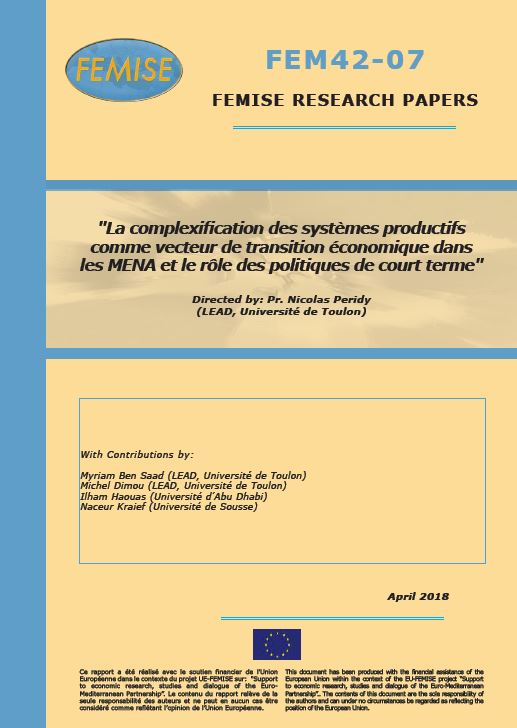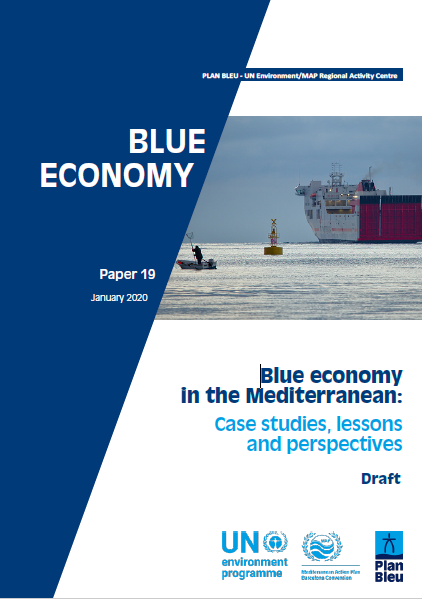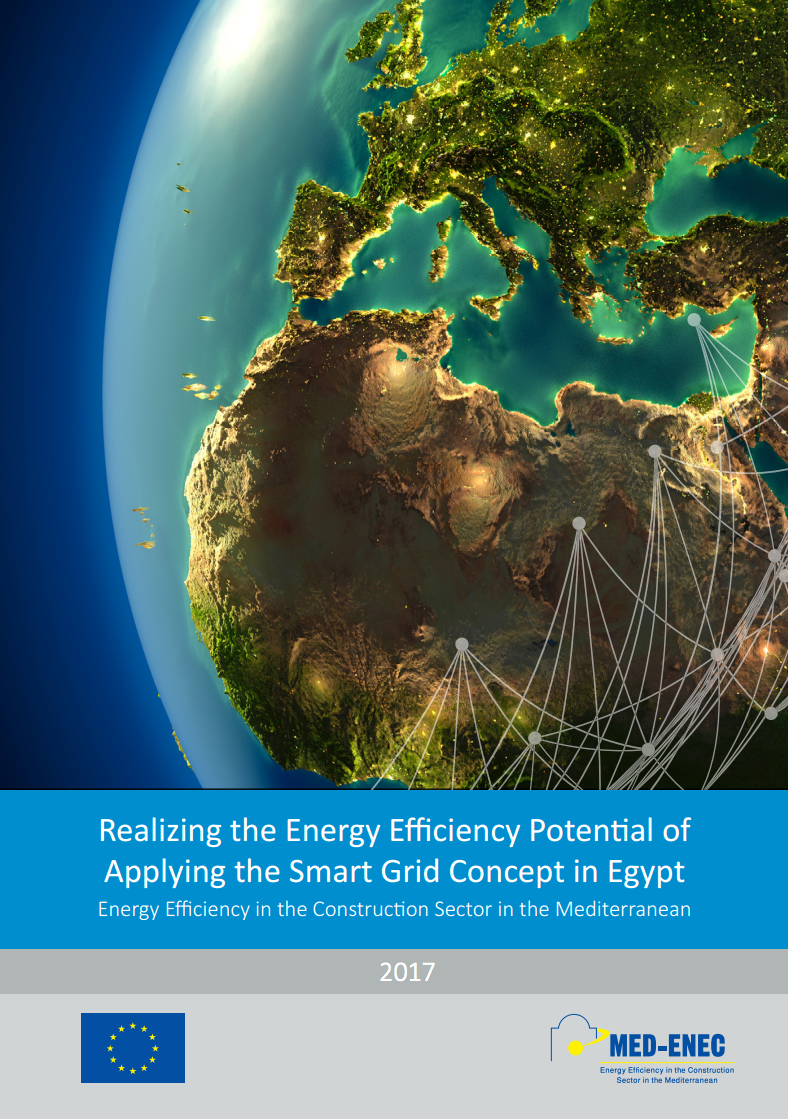FEMISE research project : Complexification of production as a vector of economic transition and the role of short-term policies

FEMISE work shows that the economic complexity of a country can be affected by the performance of its neighbours and then influenced by its own geographical position. However, this process may mask regional phenomena of divergence that must be related to the roles played by national and / or regional public policies, as well as the economic, structural and demographic dynamics (GDP / capita, education, innovation, natural resources, urbanization, …).
The main recommendations are :
- Support the development of new and highly sophisticated products beginning with providing incentives to produce these new products, and targeting activities that have training effects. In particular, Tunisia and the UAE should develop complex products such as machinery, chemical and electrical industrial clusters.
- Quickly implement training adapted to technological changes:
– Develop part-time training courses in technical, technological, industrial and service sectors in innovative and high value-added sectors;
– Develop continuing education in these same sectors;
– Open corporate training in the acquisition of specific skills in these areas (including WTO training on the role of international trade as a vector of technological sophistication);
- Reform higher and vocational education:
– Reinforce the adequacy of training in relation to new professions;
– Develop partnerships with European, Asian or American universities;
– Develop public / private partnerships ;
– Use the system of professionalized relocated diplomas.
- Develop innovative sectors (support for certain start-ups, FDI, development of free zones or technological business zones), particularly through a tax incentive policy.
- Improve economic freedom, in particular through administrative simplification laws. This will contribute to the improvement of the business environment related to a labor market reform aimed at making it more flexible, transparent and competitive (labor law).
- Improve logistics performance with appropriate investments but above all appropriate reforms (commercial facilitation in ports, reduction and simplification of administrative procedures, improvement of the effectiveness of customs controls, automation of procedures, effective fight against corruption, etc.).
- Improve governance, in particular to fight corruption effectively and promote transparency.
- Reform taxation to make it simpler, more efficient and more incentive.
- Use sound macroeconomic policies, in particular to reduce the economic vulnerability of MENA countries (sustainable fiscal and fiscal policies, debt management, controlled monetary policies).
- Improve the management of natural resources (gas, oil, etc.):
– use the benefits of natural resources to diversify and sophisticate the economy;
– develop industrial zones based on comparative advantage in natural resources;
– provide SME financing facilities and building the capacity of local businesses to accelerate structural transformation;
– continued improvement of macroeconomic policies to effectively manage the risks associated with Dutch disease and the volatility of revenues from natural resources;
– create a favorable environment for private investment.
These recommendations can be initiated and implemented quickly by public authorities which must send a strong signal to the economic actors in order to accelerate this process of sophistication of the Mediterranean economies, with the aim of promoting growth and employment, particularly qualified.
Latest Publications































 Syria
Syria 



